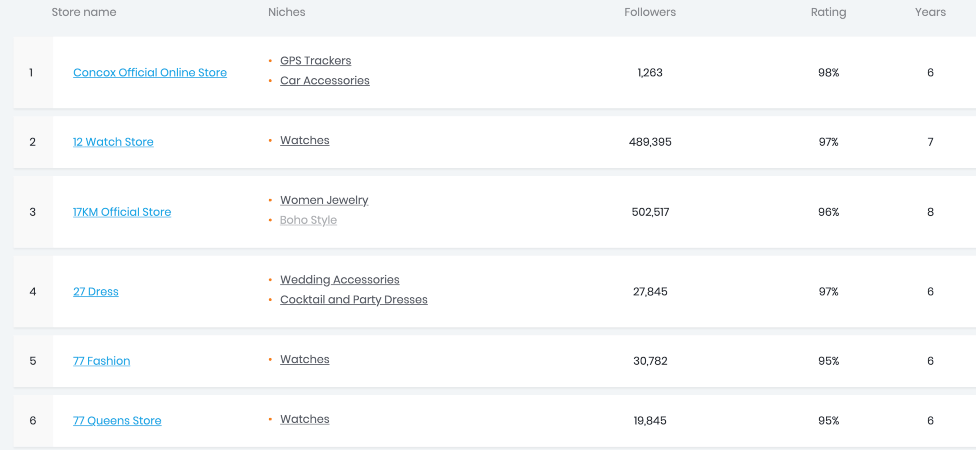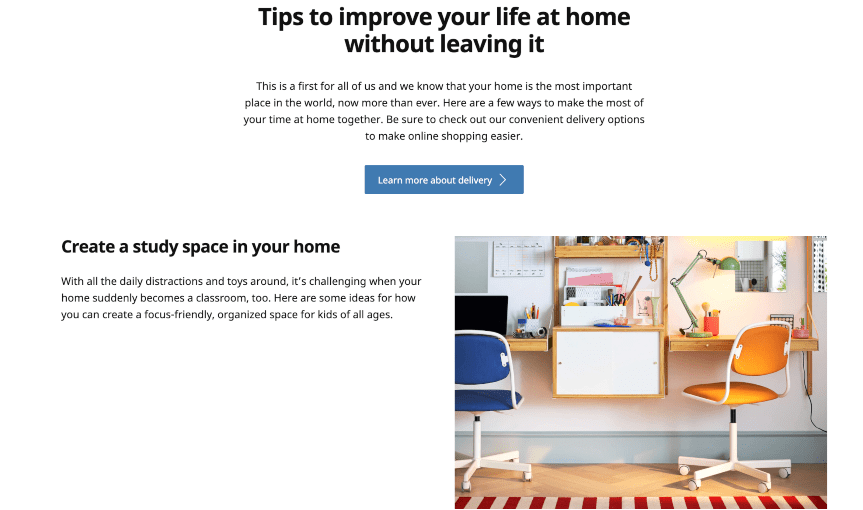How To Maintain Your Online Business During COVID-19

For an owner of any online business, COVID-19 outbreak is both the period of new challenges to face and the time of new opportunities to embrace. What should entrepreneurs do in this new ecommerce environment?
As the COVID-19 pandemic continues to hold the world tight in its grip, businesses all over are feeling the economic strain. Luckily, online retailers may be more exempt to the losses suffered by brick-and-mortar stores due to their convenient nature. As millions worldwide are still under lockdown for quarantine, online shopping continues to surge in popularity.
But if you’re running a dropshipping store, it’s still smart to be safe and to monitor your suppliers, orders, and overall site performance to ensure customers can shop with ease during this difficult time in retail.
Today, we’ll share a stress-free 9-step action plan for you to follow as you run your online store in this period of high online demand. Use it as an easy checklist!
#1 Keep in contact with your suppliers
Trusted AliExpress suppliers you can find in Dropship Insights, a free database for online entrepreneurs.
Suppliers are located all over the globe, so it’s best to periodically check in with them to see they are back in full operation yet. Find out if there are any changes to production, shortage of any items, or changes in delivery time or terms. Your suppliers are your best partners, so they’ll be able to tell you accurately how inventory will affect your business. They will also be your best source for any alternate items or replacement items you can consider selling if someone is out of stock or affected by supply chains.
#2 Update customers on your online business COVID-19 response and any order changes
Being openly communicative with your customers is crucial in a time where consumers are turning to online shopping like never before. Good customer service should exist at any time of the year, but it’s especially important during a time where people are being super conscious about their purchases. If any orders are delayed or if a supplier is out of a certain product, let your customers know. It’s best if you can do this ahead of time! Due to the harsh impacts of COVID-19 on everyday life, people are more empathetic and understanding right now towards businesses, so just keep the communication open.
It’s also imperative from a business standpoint that you let customers know you are continually monitoring the progression of coronavirus and will monitor your suppliers and inventory to ensure standard order fulfillment. Let them know to expect possible delays in shipping or possible inventory shortage due to the coronavirus. Again, these logistical and supply chain setbacks have affected business all over (even online), so it’s the new normal now with online shopping. People will understand — but be sure to follow up your email communication and to respond to questions or concerns customers may ask on social media.
#3 Offer incentives if you can
If you have to cancel a pending order, try handing out a coupon code or something to entice a customer to make another purchase in the future. Do the same for orders that have been delayed but are able to be fulfilled and shipped. Showing empathy towards a customer in a time where neither the customer or business can control a crisis will really win over a customer. Offering 15-20% off a future order or free shipping shows a customer-first mindset for your business, and that can go a long way.
#4 Use this time to update your products or niche
IKEA groups products toward working from home.
With a surge in online shopping, you can take this time to research more on what products you can possibly add to your existing online catalogue. A common sales and marketing tactic right now is to gear online retail towards creating work-from-home environments and more comfortable home living. If you utilize the AliDropship plugin, you can use it to search for items on AliExpress and add them to your online store in one click.
If you’ve been thinking of shifting your store’s product niche or branching out to include more items for greater appeal, now is also the time.
Aside from purchasing our plugin, you can also sign up for AliDropship Insights, our free analytics tool that allows you to search easily for high-selling products and product niches. It’ll definitely come in handy.
#5 Try lowering prices
Aeropostale launches a sale campaign to appeal to people at home.
One common trend the world has seen during the past few months is businesses being generous (and again, empathetic) and waiving fees such as those for plastic bags in stores, shipping, and even just lowering item prices in general. You can take the time to calculate your profit margin and see if you can lower your product’s prices as well. Remember, you can just test this out first — maybe on your highest-selling category to see if sales will go up. If you see success, you can apply this price-lowering tactic to different products or categories.
Millions of people are shopping online due to being locked indoors. Therefore, lower cost for items (even if they are non-essential items) is definitely a motivator for purchase.
#6 Search for possible new audience segments to target your business
Since a majority of the world has to resort to online shopping due to global coronavirus shutdowns of malls and shopping centers, you can be sure that all sorts of age groups and shopper niches are browsing right this second. If you’ve ever identified potential secondary or third target audiences or shopper types for your website, you can try including them when deciding which products to add to your website or when calibrating your paid ad audience target settings.
#7 Monitor your paid ads
Paid Facebook ad from Shanghai Tang.
Speaking of paid ads, be sure to connect any supplier information over to your current or planned ad campaigns on social media. If a supplier cannot meet demand for a certain product or products, be sure to cancel any ads you can have for those items. If a certain product’s stock or supply chain is having issues (and it’s unsure when supply can pick back up), cancel those ads so you aren’t advertising something that isn’t available or guaranteed availability any time soon.
And if you’ve been running any campaigns for existing products that haven’t yielded much return, cancel them or recalibrate your target settings or ad spend.
#8 Cancel paid subscriptions to external tools/services (if you use any)
Businesses all over are looking to cut costs due to losses from the coronavirus pandemic. Even though you are an online business, it can affect you as well due to supply chain or supplier issues (or later unforeseeable issues). We suggest looking for zero-cost marketing techniques (or those that are less costly than what you are currently paying). For example, if you are paying a subscription for a premium photo editing software, you can consider some free graphic design or layout websites instead such as Canva or Pixlr. Note some premium features require payment, so compare to see what plan works best for you or could cost you less.
#9 Focus on technical website improvements
Technical maintenance of a website isn’t the most glamorous work, but is important. And for many business owners who are overseeing their websites or involved hands-on in the day to day, technical work may be the last thing on their plates. Set aside time to look into aspects such as the site loading speed, SEO, and mobile optimization of your site.
If you need extra help, check out our free help articles on the AliDropship Knowledge Base. Or, if you have purchased either our plugin or one of our established or premium stores, you can reach out to our team at support@work10.alidropship.com for help on any of your technical work.
And if you have the coin to spend, you can pay for our professional services, which can range from SEO to website theme setup (which encompasses mobile compatibility).
SUMMARY: For you, as for an owner of an online business, COVID-19 response should first of all be aimed at monitoring your suppliers and inventory and in turn, keeping your customers in the loop on their orders. Communication is key during this time. You can also take this period of high ecommerce activity to test out lower prices, new items, and product niches for your website. And to help keep more money in your account during this economic crisis, you can exercise cost-saving measures such as canceling costly subscriptions and ad campaigns that are poor performing or targeted for items affected by supply chain or supplier issues.

tutorials and special offers from AliDropship


















Hi, i want to start this business
Hi, thank you for your interest!
Check out this article to see where to begin: https://work10.alidropship.com/how-to-become-a-dropshipper/
Then, choose a type of a store you’d like to have here https://work10.alidropship.com/stores-comparison/. On that page, you can also ask for a free consultation if necessary.
Best of luck with your venture!